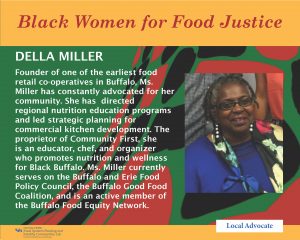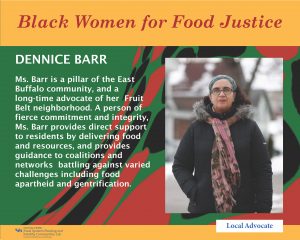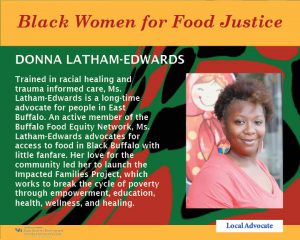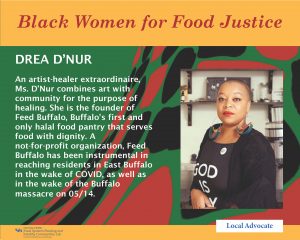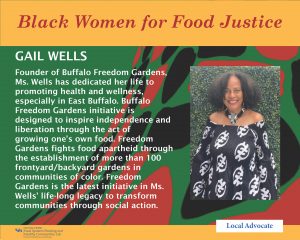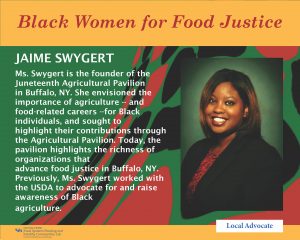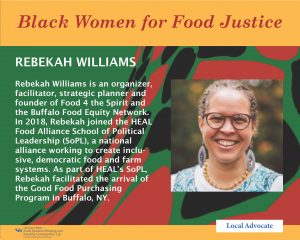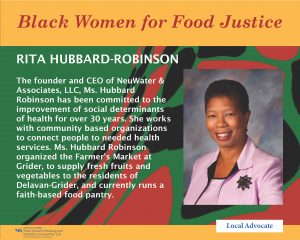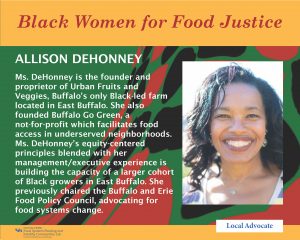All posts by syedatqa
Op-ed: East Buffalo Needs Community-Driven Structural Investments, Not Fly-In, Fly-Out Charity
Building Capacity for Food Equity Research in Crisis Settings
How do scholars co-produce knowledge with community partners and early career researchers? How can this work happen in an equitable way in cities and regions that are in the throes of conflict? A panel from the UB Food lab tackles this question drawing on their collaborative research in Jammu and Kashmir. Speakers Insha Akram (Fellow and Trainee), Athar Parvaiz (Research Affiliate), and Samina Raja (Director, Food Lab) will share insights from their collaboration as part of the Building Blocks of Equity Series hosted by the Community for Global Health Equity.
The aim of the larger series is to encourage participants to:
- discover how co-produced knowledge can promote health equity for individuals;
- understand the importance of training students to ethically and responsibly work with community partners;
- learn how to develop reciprocal partnerships early on in academic careers;
- discuss barriers to educating students on how to co-produce knowledge.
The event will be held on May 5, 2022 at 3:00 PM via Zoom.
For more information and registration click here.
Latest Podcast | Food equity in cities with Leslie Knox, Rose Luciano, and Samina Raja | Connections with Evan Dawson
How can Rochester rebuild its food infrastructure to make the system more equitable? Cities around the country are asking this question. The answers often include community gardens, urban farms, fresh food cooperatives, and more.
University at Buffalo urban planning professor, Samina Raja, will be in Rochester next week to discuss the issue as part of the Reshaping Rochester series. The podcast preview her talk on food equity by design.
Food Equity by Design
Speaker: Samina Raja, PhD
Wed, April 27, 2022 | 12:00 PM – 1:30 PM EST via ZOOM
17th Annual reshaping ROCHESTER series, Community Design Center, Rochester, NY
Dr. Samina Raja will deliver a virtual lecture at the 17th reSHAPING ROCHESTER series. This year the series focuses on what it means for a city to be “ideal,” and asks if/how a community could become ideal. Dr. Raja will focus her remarks on the ideal of food equity in cities.
Cities around the United States are rebuilding their community food infrastructure. Community gardens, urban farms, farmers’ markets, rooftop gardens, and fresh food cooperatives are transforming food landscapes. How does this resurgent interest in communities’ food infrastructure center questions of equity and justice, if at all? Who controls food landscapes in cities? What role can planning and design play in creating a more just and equitable community food infrastructure? Drawing on community-centered research completed in US cities, Dr. Samina Raja will explore these questions in her talk as part of the Reshaping Rochester series.
Register here: https://www.eventbrite.com/e/reshaping-rochester-webinar-with-dr-samina-raja-tickets-244428290597?aff=site
Food Lab team member to speak at Climate Solutions Summit
UB Food Lab team member Nathaniel Mich will be speaking on a panel at the Climate Solutions Summit with a focus on the Genesee-Finger Lakes region. The Summit will focus on climate solutions, and will build skills in climate action, advocacy, organizing and leadership. The Summit will feature regional projects/programs/initiatives, barriers and challenges to achieving short and long-term progress, co-benefits, including workforce dev, and opportunities for advocacy and public engagement. At the summit, Nathaniel Mich will share his perspective on “the role of planning and policy in building equitable, healthful and sustainable food systems and healthy communities.” The panel will be held on April 23, 2022 at 10:30 am via Zoom.
Attendees must register here. https://www.climategfl.org/summit
Making Food Work Visible on International Women’s Day
The world would be better off if there was no need for International Women’s Day. Inequity tied to structural factors fuels gender-related disparities in all walks of life (including in the world of research where our lab of researchers of women of color is a rarity). Consider the following examples from the world of food systems. Women farmworkers execute the bulk of manual work — such as weeding and harvesting — in fields but do not accrue commensurate financial benefits from the sale of products. Small-scale farm households headed by women earn 30% less, on average, than farm households headed by men. In India, women comprise 42% of the agricultural workforce but own only 2% of the land. In the US, half of the graduates of culinary schools are women, yet fewer than 20% are chefs. A greater proportion of women are likely to be farmworkers or food service workers than owners of farms or food businesses, and, therefore, have limited power and material resources within the food system. Within homes, women’s food-related work (of buying and preparing food, and feeding people) remains invisible. The examples are one too many.
We hope that our readers go beyond celebrating the individual successes of women to paying attention to structural questions. Why do gendered disparities continue to exist (in the food system)? Why is there a glass ceiling in the first place? What structural and policy changes are needed at all levels of governance to eliminate gender-related disparities, especially for women from marginalized groups? What would it take for city governments across the United States to conduct an audit of their policies, programs, and budgets to discern if municipal work is truly supporting women in their jurisdictions? Sure, celebrate International Women’s Day — but also act to eliminate gender-related inequities in the food system
Authors: UB Food Lab [Women of Color] Researchers including Insha Akram, Carol E Ramos Gerena, Lorna Georges, Rachel Grandits, Shireen Guru, Samina Raja, Rose Thomas, and Atqa Qadri.
Notes.1. Data sources: Available upon request.2. Photo: Women researchers of the UB Food Lab (Yes, our skills at research don’t necessarily translate well to making a fist).

Who’s behind the research?
Food and health inequities are complex problems that cannot be addressed by a single discipline or a single individual. Our action research is made possible because of the collaborative intellect, energy, and leadership of seasoned and early career researchers from a host of disciplines. Today we introduce you to some of the lab crew students and fellows working!
Our spring 2022 team includes William Gonzales (history, undergraduate) , Lorna Gorges (environmental design, undergraduate student),Rachel Grandits (sustainability, graduate student), Shireen Guru (research fellow), Eric Hughes (geographic information science, graduate student), Zachary Korosh (urban planning, graduate student), Nathaniel Mich (urban planning, graduate student), Carol Ramos Gerena (urban planning, doctoral student), Rose Thomas (public health, graduate student), Atqa Qadri (artificial intelligence, graduate student). Students in the picture are joined by professors Drs. Emmanuel Frimpong Boamah (Co-Principal Investigator) and Samina Raja (Principal Investigator) who guide the research with other faculty and community partners (not in the photo).
Seeding East Buffalo Fellowship Application
Residents in East Buffalo have an exciting opportunity to join the Seeding East Buffalo Fellowship Program! Selected fellows will train with an experienced East Buffalo grower to learn how to grow their own food. Fellows will also receive a $350 grant award for growing supplies including soil, seedlings, and materials. By the end of the program, fellows will have the knowledge they need to grow food at home, to help their neighbors with gardening, and to advocate for a better East Buffalo!
DEADLINE The deadline to apply is April 18, 5:00 PM EST and fellowship winners will be announced in May, 2022.
WHEN WILL THE PROGRAM START AND WHAT WILL FELLOWS DO? The Seeding East Buffalo program will begin in May 2022. Fellows will learn about a variety of topics with experienced growers and community leaders. Fellows will learn about Black farmers/grower’s relationship to land, agriculture and food systems, and agriculture practices for sustainable soils, and the local growing season. Fellows will receive hands-on training focused on growing food from seeds and seedlings, seed saving, organic pesticide management, and harvesting. Fellows will also have the opportunity to learn how to shape policy to better serve communities. Fellows will train weekly on a farm in East Buffalo during the 2022 growing season (additionally, a welcome workshop and a graduation celebration will be held at an off-farm site). Most activity will happen on the weekends.
WHO IS ELIGIBLE? Applicants must be 18 years of age or older and reside in one of these Buffalo neighborhoods: Masten Park, Fruit Belt, Pratt-Willert, Broadway Fillmore, MLK Park, Delavan Grider, Kensington-Bailey. No gardening experience is required!
WHO IS BEHIND THE PROGRAM? The fellowship program is supported by a coalition of community leaders and researchers as part of the Growing Food Policy from the Ground Up Project (GFPGU). The urban farmers leading the training are from Urban Fruits & Veggies (UFV). UFV is proud of the high quality of the produce they provide to the community. Only the best seeds, soil and organic fertilizers are used when planting healthy crops. Their management team are certified in Good Agricultural Practices (GAP), and have a focus on food safety and providing quality products grown with the best non-treated seeds, quality soil and no chemical pesticides! UFV is certified as a Minority and Women Business Enterprise (MWBE). Read about UFV at: https://www.urbanfv.com. For more information, contact Urban Fruits & Veggies, CEO, Allison DeHonney by email at dehonn@outlook.com or by phone at 716-829-3782.
Partners behind this effort include Appetite for Change, Food for the Spirit/Buffalo Food Equity Network, Freedom Gardens, Johns Hopkins University, Massachusetts Avenue Project, University at Buffalo Food Systems Planning and Healthy Communities Lab, University of Minnesota, and Urban Fruits & Veggies LLC. Funding for this effort is made possible in part by the Foundation for Food and Agricultural Research (FFAR). You can read more about the overall effort at: http://foodsystemsplanning.ap.buffalo.edu/project/growing-food-policy-from-the-ground-up-gfpgu/
Please begin your application!
